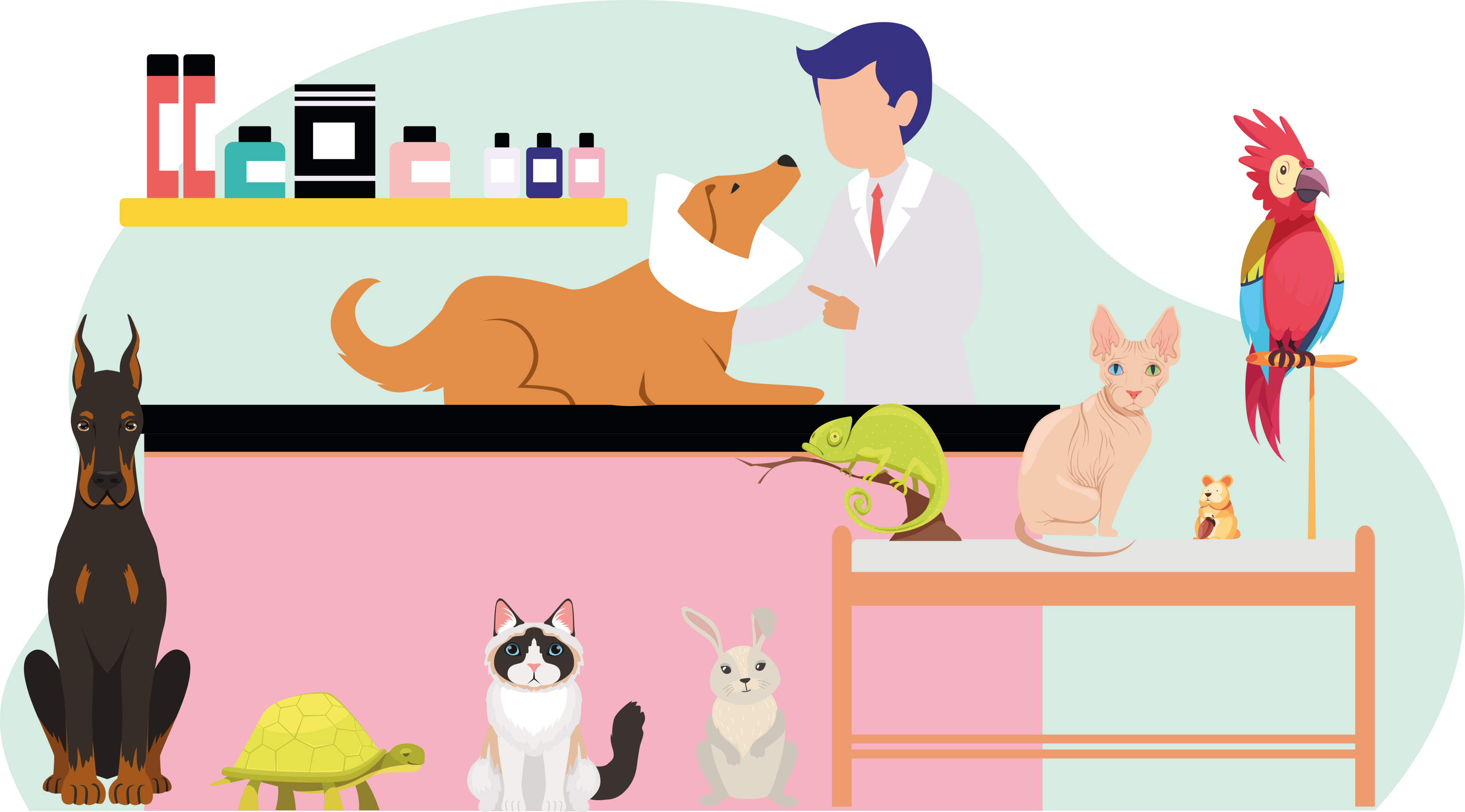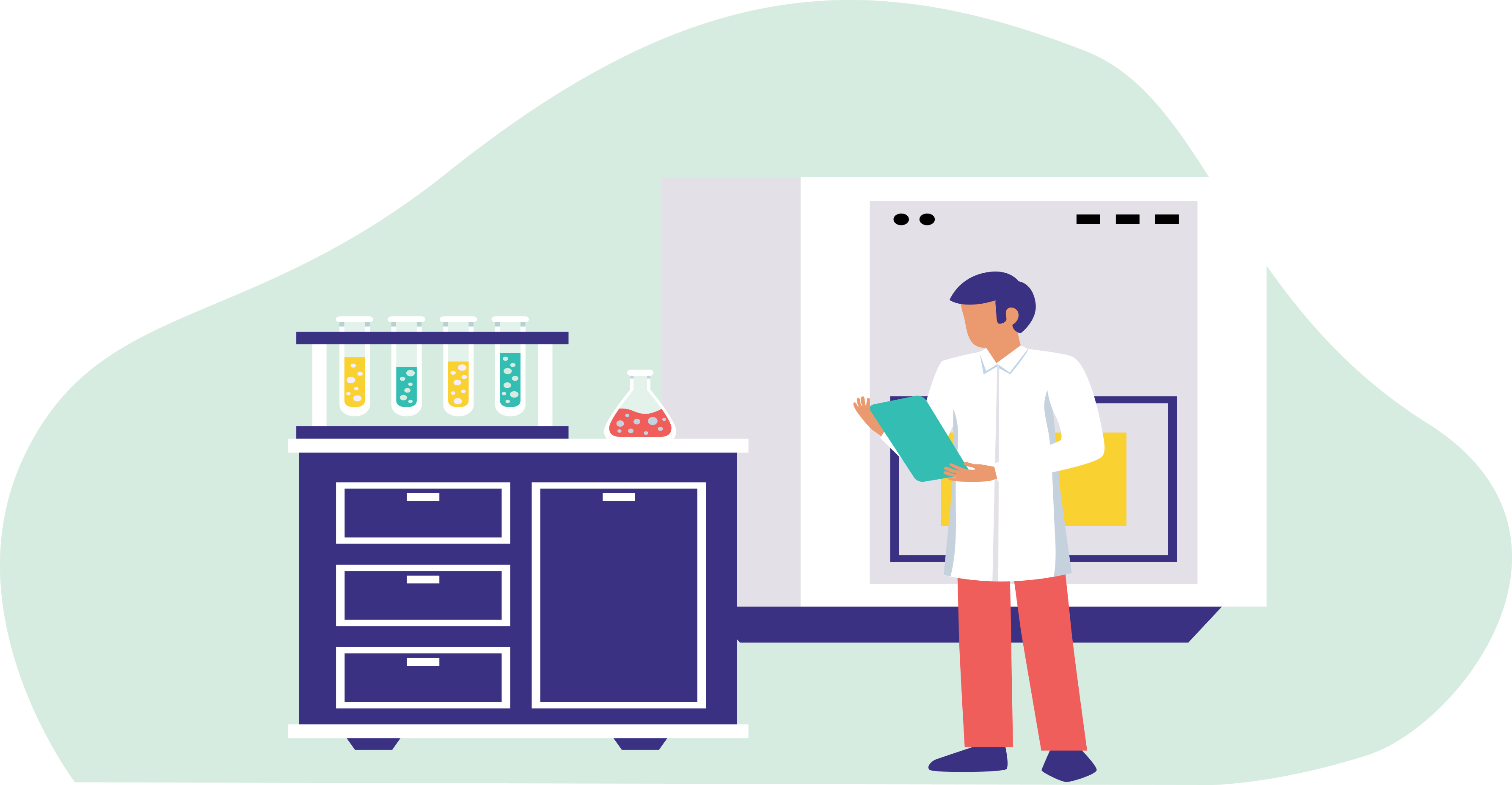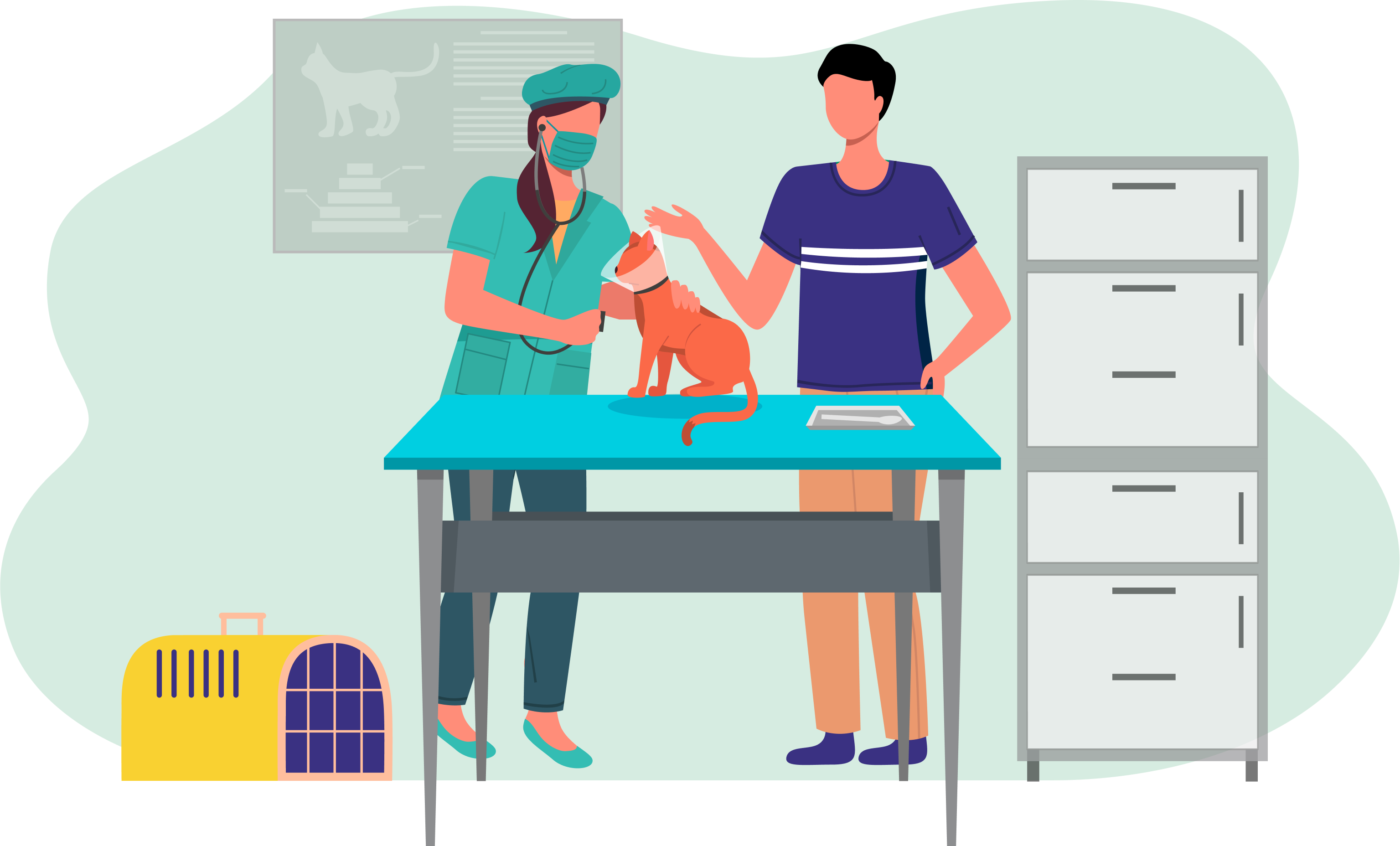
Veterinary Technicians work with Veterinarians, having various responsibilities such as running laboratory tests and meeting the needs of animal welfare.
Veterinary Technician Job Description
- Track animals' behaviour and keep tabs on their health status.
- Administer necessary treatment and first aid procedures for injured animals.
- Engage in sample collection and undergo required testing and analysis.
- Assist Veterinarians in surgery through animal and equipment preparation.
- Groom animals and ensure the upkeep of their welfare.
- Provide compassionate care to animals, including feeding, grooming, and exercising patients.
- Ensure that all veterinary instruments and equipment are clean and in good working condition.
Note
As Vet Technicians, your skill and compassion are crucial in animal care. You impact lives daily. Embrace challenges for growth, and know your dedication is invaluable.
What you should know about Veterinary Technician jobs in Singapore
Nature of Work
As Veterinary Technicians, you will face dynamic, varied days with animals and emergencies, making the job exciting yet sometimes stressful.Key Advice
You need to be ready to handle all types of animals and clearly communicate medical information and expectations to the pet owners.-
Entry RequirementsEntry Requirements
- Some jobs need their Veterinary Technicians to have a bachelor's degree or diploma in Veterinary Technology. In Singapore, Temasek Polytechnic offers a diploma in Veterinary Technology. Though there are positions that provide on-the-job training, regardless, having an education background in Veterinary Technology would definitely benefit you in this field!
- It is advantageous to learn more about the Veterinary scene in Singapore through organisations such as the Animal Veterinary Service (AVS) and the Singapore Veterinary Association (SVA)!
-
Possible PathwayPossible Pathway
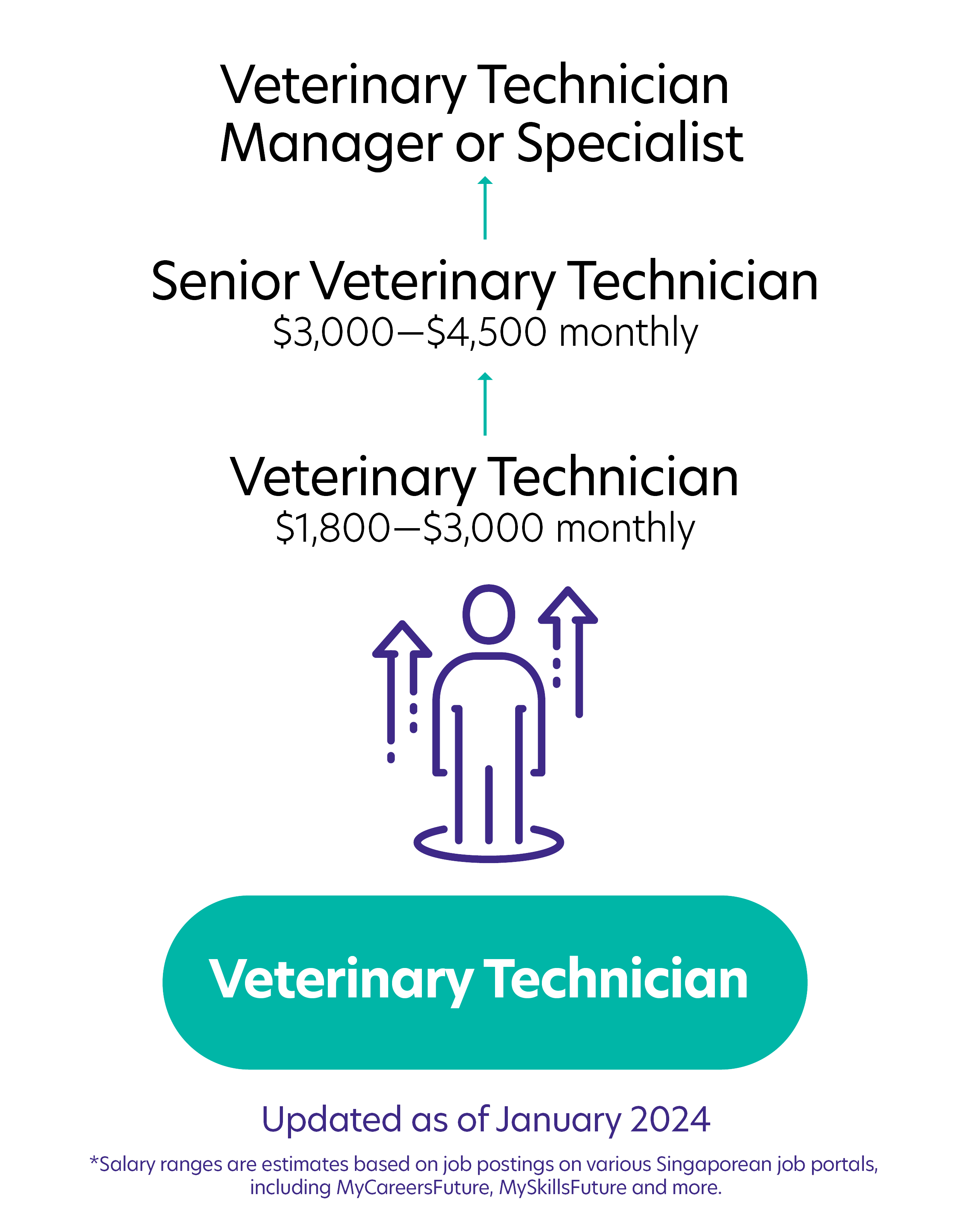
Skills you need to pursue a Veterinary Technician career in Singapore
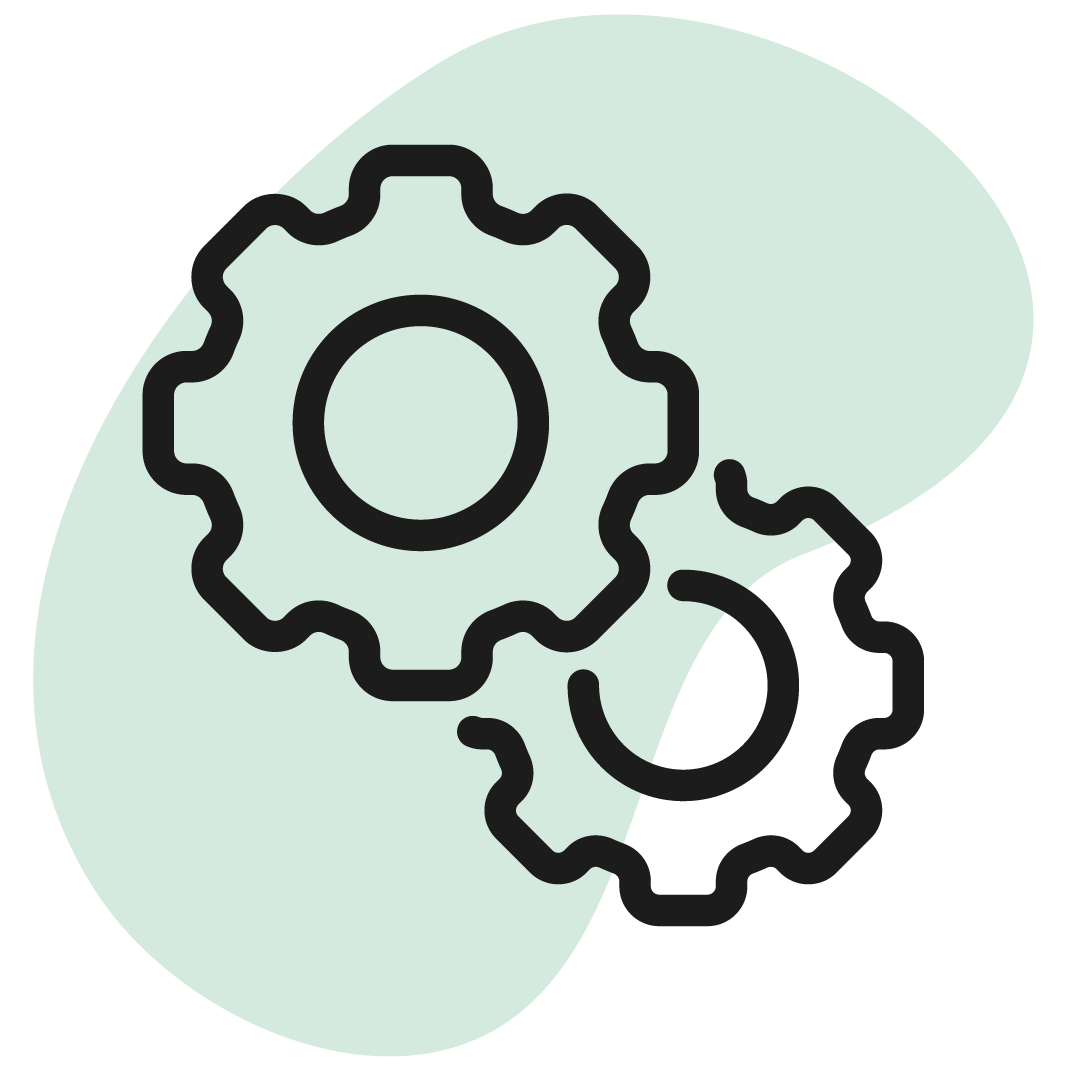 Hard Skills
Hard Skills
Animal Handling Skills
Proficient in managing different species safely and calmly.Veterinary Technologies
Skilled in using modern Veterinary equipment and tools.Animal behaviour
Knowledgeable in interpreting and responding to animal behaviours.Communication
Effective in conveying complex info to clients and team members.Resource Management
Efficient in utilising and allocating clinic resources.Service Orientation
Dedicated to providing exceptional care and client service.Related Job Roles
Explore Other Programmes
Browse AllYou have bookmarked your first item!
Find it in My Discoveries with insights on your interests!
